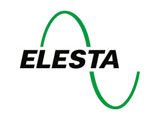Relays with forcibly guided contacts
Relays with forcibly guided contacts are specified wherever the logic of an application wants to detect the state of the contacts of a relay and use it for control purposes. Such relays enable the implementation of self-monitoring systems.
Typical applications in the safety market are:
- Emergency-off devices
- Monitoring devices for protective doors
- Robot controls
- Light curtains
- Light barriers for safety purposes
- Two-hand switching devices
- Step mat controls
- Elevator controls
- Signals engineering, railway controls etc.
Because these relays are used in safety critical applications, relays with forcibly guided contacts are subject to special requirements, which are summarized in the standard EN50205. This standard specifies that the switching relays must feature at least one NC and one NO contact. The contacts are mechanically interlocked in such a way that the NC contact and the NO contact can never be closed at the same time. This applies over the entire life span for contacts under load and no load conditions. Apart from this it must be guaranteed that open contact distances of at least 0.5mm exist over the full life in normal operation as well as in any case of relay failure. All newly developed relays of ELESTA relays GmbH have gained TÜV approval for compliance with this standard, i.e. they meet the latest requirements applicable to relays with forcibly guided contacts.
At this time the range of ELESTA relays GmbH comprises:
- 36 different styles of safety relays with up to 10 forcibly guided contacts.
Insulation of different voltage potentials
In power installations, relays are used for galvanic separation of different voltage potentials. In addition to this isolation, relays with forcibly guided contacts must guarantee mechanical interlocking of the contacts. In corresponding applications at least one contact is used for control, and further contacts serve for either control or load switching purposes. In normal power relays, galvanic separation is usually only effected between coil and contact block, in the case of relays with forcibly guided contacts, isolation of different voltage potentials must also be guaranteed within the contact block.
Galvanic separation within the contact block
Relays with forcibly guided contacts are used in applications relying upon a high degree of safety. Thanks to the forcibly guided contacts and high voltage isolation characteristics, they guarantee the protection of people and equipment over the full life span of the relay including fault conditions. The separation of the power circuits is achieved with suitably dimensioned insulation between live components (basic insulation, extra insulation, reinforced insulation, EEx insulation). The creepage distances and clearances are defined in accordance with the insulation voltage. The control side of the relay to the output contacts and also theoutput contacts among themselves are spaced with the required isolation distances. With the products of ELESTA relays GmbH, an isolation voltage of >250V specified for many applications can even be guaranteed for the case of “safe separation”. ELESTA relays GmbH produces its relays under the motto
“Safety without compromise”
This is why the dimensioning of the creepage distance within the relay is steadfastly based on pollution degree 3 which the applicable standards define for conductive pollution. The detailed layout of insulation/isolation barriers can be found in the specifications.
Pollution degree 3
Insulation strength (basic insulation, additional insulation, double insulation, reinforced insulation, EEx insulation) depends on the safety levels demanded of the equipment in which the relay is used. Insulation dimensioning is based on pollution degree 3, which is the level required by the EN50205 standard for relays with forcibly guided contacts. ELESTA relays comply rigorously with the standard, because relays with forcibly guided contacts find uses in highly safety-conscious applications. The result is added safety for personnel and plant.
Maximum insulation strength
ELESTA relays GmbH offers relays with the highest degree of insulation. The control side of the relay is separated from the output contacts, and similarly, the output contacts are separated from each other by double or reinforced insulation. In this way “protective separation” for an insulation voltage of > 250V is reached.
EEx protection
In the standards relating to electronic components for areas where a danger of explosion exists, a creepage distance of > 10 mm is defined for the insulation voltage of < 375V for separating conductive parts. All ELESTA relays GmbH products meet this demand between the control side and the output side of a relay (intrinsically safe electrical circuits in categories “ia” and “ib”; the requirements of the PTB Parts Certificate or relevante EEx protection regulations must be observed).
Standards and directives relating to relays with forcibly guided contacts
The main purpose behind the applicable standards is to establish minimum requirements for measuring and manufacturing industrial electronic control gear, and afford protection against electric shock.
The minimum requirements set out by the standards reflect professional experience in achieving given technical levels of safety and reliability.
The major standards are:
- prEN50178: Electronic equipment for use in power installations
- DIN VDE0160: Electronic equipment for use in power installations
- DIN VDE0106: Protection against electric shock
- IEC664: Insulation coordination for equipment within low-voltage systems
- DIN VDE0110: Insulation coordination for equipment within low-voltage systems
- DIN VDE0700: Safety of household and similar electrical appliances
- DIN VDE0730: Automatic electrical controls for household and similar use
- DIN VDE0631: Automatic electrical controls for household and similar use
- VDE0860: Safety requirements for electronic and related apparatus for household and similar general uses
- VDE0804: Particular safety requirements for equipment to be connected to telecommunication networks
- IEC255: All-or-nothing electrical relays
- EN50205: Relays with forcibly guided (linked) contacts
- EN50020: Electrical apparatus for potentially explosive atmospheres

